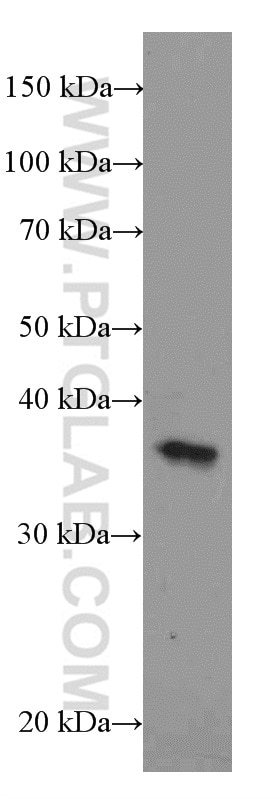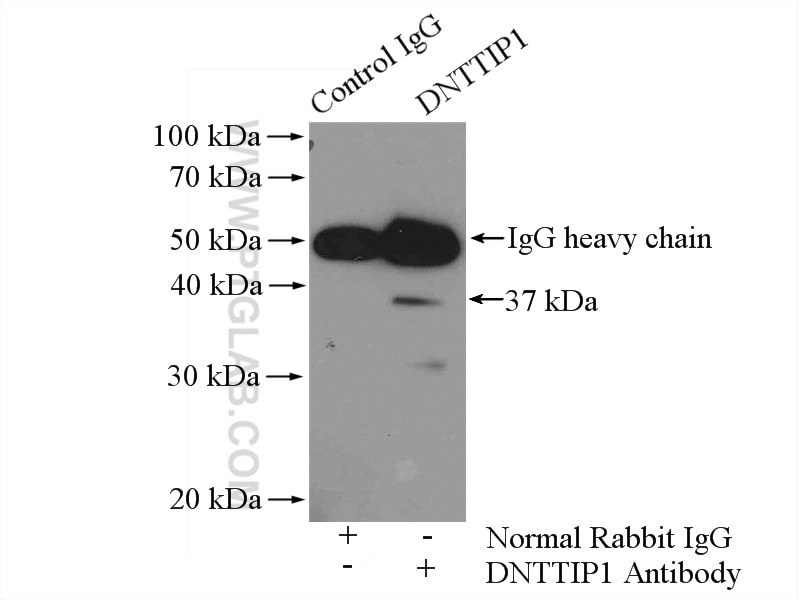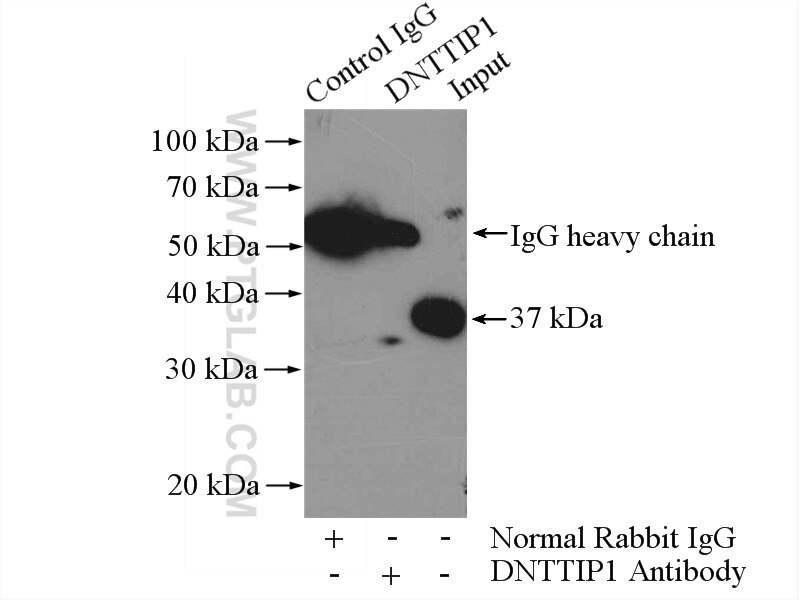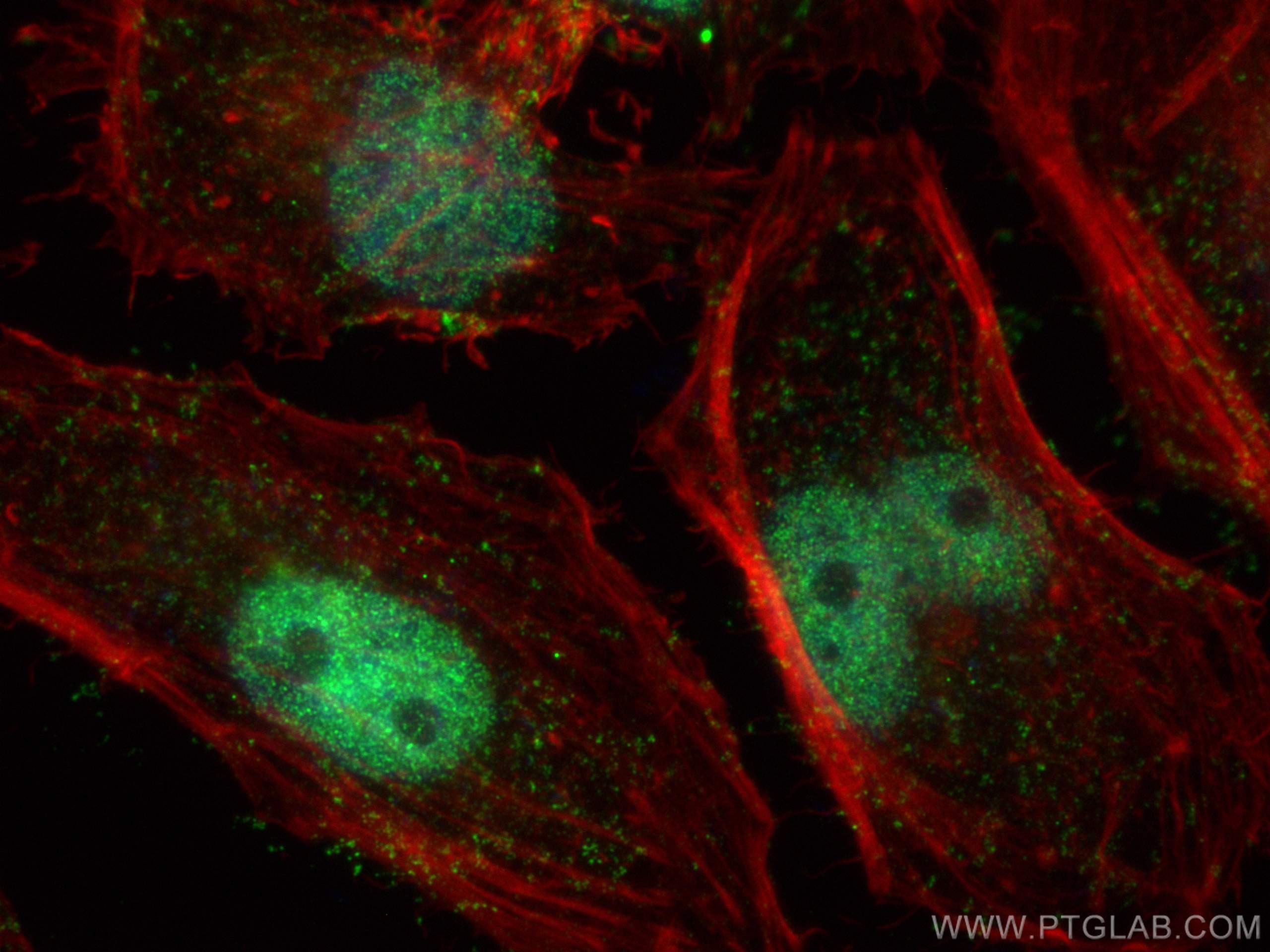Validation Data Gallery
Tested Applications
| Positive WB detected in | HeLa cells |
| Positive IP detected in | HeLa cells |
| Positive IF/ICC detected in | HeLa cells |
Recommended dilution
| Application | Dilution |
|---|---|
| Western Blot (WB) | WB : 1:500-1:1000 |
| Immunoprecipitation (IP) | IP : 0.5-4.0 ug for 1.0-3.0 mg of total protein lysate |
| Immunofluorescence (IF)/ICC | IF/ICC : 1:200-1:800 |
| It is recommended that this reagent should be titrated in each testing system to obtain optimal results. | |
| Sample-dependent, Check data in validation data gallery. | |
Product Information
11637-1-AP targets DNTTIP1 in WB, IF/ICC, IP, ELISA applications and shows reactivity with human samples.
| Tested Reactivity | human |
| Host / Isotype | Rabbit / IgG |
| Class | Polyclonal |
| Type | Antibody |
| Immunogen |
CatNo: Ag2213 Product name: Recombinant human DNTTIP1 protein Source: e coli.-derived, PGEX-4T Tag: GST Domain: 1-329 aa of BC024290 Sequence: MGATGDAEQPRGPSGAERGGLELGDAGAAGQLVLTNPWNIMIKHRQVQRRGRRSQMTTSFTDPAISMDLLRAVLQPSINEEIQTVFNKYMKFFQKAALNVRDNVGEEVDAEQLIQEACRSCLEQAKLLFSDGEKVIPRLTHELPGIKRGRQAEEECAHRGSPLPKKRKGRPPGHILSSDRAAAGMVWKPKSCEPIRREGPKWDPARLNESTTFVLGSRANKALGMGGTRGRIYIKHPHLFKYAADPQDKHWLAEQHHMRATGGKMAYLLIEEDIRDLAASDDYRGCLDLKLEELKSFVLPSWMVEKMRKYMETLRTENEHRAVEAPPQT 相同性解析による交差性が予測される生物種 |
| Full Name | deoxynucleotidyltransferase, terminal, interacting protein 1 |
| Calculated molecular weight | 329 aa, 37 kDa |
| Observed molecular weight | 37 kDa |
| GenBank accession number | BC024290 |
| Gene Symbol | DNTTIP1 |
| Gene ID (NCBI) | 116092 |
| RRID | AB_2877787 |
| Conjugate | Unconjugated |
| Form | |
| Form | Liquid |
| Purification Method | Antigen affinity purification |
| UNIPROT ID | Q9H147 |
| Storage Buffer | PBS with 0.02% sodium azide and 50% glycerol{{ptg:BufferTemp}}7.3 |
| Storage Conditions | Store at -20°C. Stable for one year after shipment. Aliquoting is unnecessary for -20oC storage. |
Background Information
DNTTIP1, also named as Deoxynucleotidyltransferase terminal-interacting protein 1, is a 329 amino acid protein ,which contains a Nuclear localization signal and localizes in the nuclear. DNTTIP1 also acts as a transcriptional regulator, which binding to the consensus sequence 5'-GNTGCATG-3' following an AT-tract. Associates with RAB20 promoter and positively regulates its transcription.
Protocols
| Product Specific Protocols | |
|---|---|
| IF protocol for DNTTIP1 antibody 11637-1-AP | Download protocol |
| IP protocol for DNTTIP1 antibody 11637-1-AP | Download protocol |
| Standard Protocols | |
|---|---|
| Click here to view our Standard Protocols |




